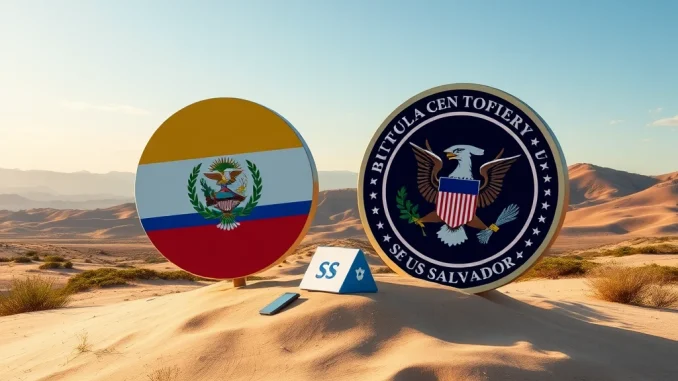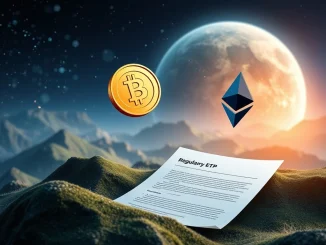
Big news is brewing in the world of global digital asset regulation! El Salvador, a nation known for its pioneering stance on Bitcoin, is now taking another significant step. They, along with key partners, have proposed a groundbreaking initiative to the U.S. Securities and Exchange Commission (SEC): a cross-border regulatory sandbox.
What is the El Salvador Crypto Sandbox Proposal?
According to meeting minutes from the U.S. Securities and Exchange Commission’s Crypto Task Force, released on April 22, a formal proposal has been submitted. The entities behind this initiative are El Salvador’s National Commission on Digital Assets (CNAD), the U.S. law firm Perkin Law Firm, and former Goldman Sachs partner Heather Shemilt.
The core idea is to create an experimental environment – a ‘regulatory sandbox’ – where regulators from different countries, starting with El Salvador and the U.S., can collaborate in real time. This would involve sharing data and insights gained from allowing controlled digital asset activities within the sandbox.
Here’s a breakdown of the key aspects:
- **Participants:** El Salvador’s CNAD, Perkin Law Firm, Heather Shemilt.
- **Target Audience:** U.S. Securities and Exchange Commission (SEC).
- **Goal:** Drive global regulatory innovation for digital assets.
- **Mechanism:** A cross-border regulatory sandbox allowing real-time collaboration and data sharing between national regulators.
- **Purpose:** Generate practical insights to help develop and refine the U.S. digital asset regulatory framework.
Why is a Cross-Border Regulatory Sandbox Important for US SEC Crypto Regulation?
The digital asset space is inherently global. Transactions cross borders instantly, and innovation happens worldwide. This presents a challenge for national regulators like the US SEC, whose jurisdiction is primarily domestic.
A cross-border regulatory sandbox offers a unique solution. Instead of regulators in different countries working in silos, they can observe and analyze the same activities simultaneously. This shared perspective can lead to:
- A more harmonized understanding of risks and opportunities.
- The identification of best practices across jurisdictions.
- Data-driven insights into how different regulatory approaches impact innovation and consumer protection.
- A foundation for potential future international regulatory cooperation.
This proposal specifically aims to provide the US SEC with valuable, real-world data and experience to inform its ongoing efforts to build a comprehensive and effective regulatory framework for digital assets in the United States.
What Does This Mean for Digital Asset Regulation Globally?
If the US SEC accepts and implements this proposal, even in a pilot phase, it could set a significant precedent. It acknowledges the need for international cooperation in regulating a global technology. Such a collaborative ‘regulatory sandbox’ could potentially be expanded to include other nations, fostering a more interconnected and perhaps eventually, a more standardized approach to digital asset regulation worldwide.
This initiative from El Salvador and its partners highlights a proactive approach to navigating the complexities of cross-border crypto activities and signals a desire for open dialogue and shared learning between regulatory bodies.
Conclusion
The proposal for a cross-border regulatory sandbox submitted to the US SEC by El Salvador’s CNAD and partners is a forward-thinking concept. It recognizes the global nature of digital assets and the necessity for international collaboration in shaping effective regulatory approaches. By creating a shared experimental space, this initiative seeks to provide crucial, practical insights to inform the development of the U.S. digital asset regulatory framework and potentially pave the way for greater global regulatory harmony in the future. It’s an exciting development that bears watching as the conversation around digital asset regulation continues to evolve.



